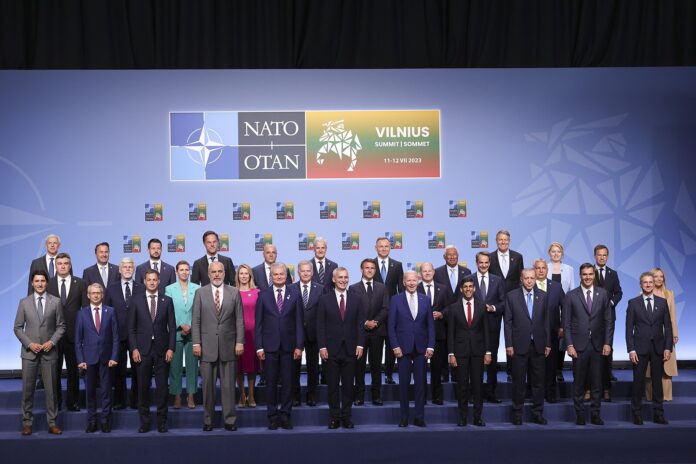U.S. President Joe Biden and his NATO counterparts concluded a productive two-day summit last Wednesday (7/12/23), reaffirming their commitment to Ukraine’s long-term assistance while refraining from extending the country’s protection within the security framework of the alliance.
The outcomes of the meeting in Lithuania, a nation situated on NATO’s eastern frontier adjacent to Russia, presented a mixed picture. Ukrainian President Volodymyr Zelenskky expressed appreciation for the promises of increased weaponry and ammunition yet voiced disappointment over the absence of a definitive timeline for his nation’s integration into the world’s largest security alliance.
Following an evening characterized by pre-summit intrigue, Sweden embarked upon a significant stride towards attaining NATO membership, with Turkey signaling its forthcoming endorsement.
Moreover, the allies initiated comprehensive adjustments to their defense strategies, and preparedness for potential acts of aggression by Russia or terrorist entities. They also reached a consensus on augmenting defense expenditures; however, no specific schedule was outlined for attaining these objectives.
The summit cultivated an environment of diplomatic involvement and strategic deliberation, fostering a spirit of cooperation among nations. It highlighted the resolute dedication of the United States and its NATO allies to preserving regional stability and maintaining shared security objectives.
Image is licensed under the Creative Commons Attribution 2.0 Generic license and was created by the UK Prime Minister.









